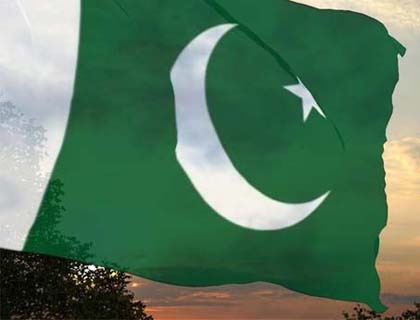KABUL - Pakistan has replied to an eight-article letter from President Ashraf Ghani during a visit to Islamabad by a high-level Afghan delegation, a source privy to the discussions revealed on Saturday.
Ghani sent the letter to Pakistani authorities in April after a spat of violence, in which dozens of people were killed and wounded. The National Directorate Security has accused special circles in the Pakistani military of involvement in a recent wave of attacks.
While Ghani alleged terrorist bases continued to be operational on Pakistani soil, he informed a press conference in Kabul he was sending a delegation to Pakistan.
The delegation that visited Pakistan on Thursday spent some hours there and held meetings with Prime Minister Nawaz Sharif and his national security advisor Sartaj Aziz.
Aziz reportedly assured the Afghan delegation of Pakistan’s complete cooperation in the war on terrorism. Headed by Foreign Minister Salahuddin Rabbani, the Afghan team included Acting Defence Minister Masoom Stanikzai and spymaster Rahmatullah Nabil.
Though the outcome of the visit remains unknown, sources and social media users claim Pakistani military leaders had avoided meeting the Afghan delegation. But an Afghan government official told Pajhwok Afghan News a meeting with Pakistani military officials was not on the agenda.
He said Pakistani government officials had asked the Afghan team to meet the Pakistan military leadership, but the delegation said it was not part of their agenda. The prime task of the delegation was to hand over a letter from Ghani to the Pakistani authorities and the delegation did so.
The delegation first met Aziz and then Nawaz Sharif. In the meeting with Sharif, Pakistan’s Inter-Services Intelligence or ISI chief was also present. The source said Pakistan offered an action plan in response to President Ghani’s previous letter and now Afghanistan was looking into the plan.
He said Kabul would come up with its reaction after evaluating the Pakistani response. After the Afghan delegation’s Islamabad visit, the Afghan Ministry of Foreign Affairs in a statement said that Pakistan was ready for serious cooperation with Afghanistan against terrorists.
It said Pakistan was investigating Afghan government’s allegations following the attacks in Kabul. Last night, the Foreign Ministry in a separate statement said that the Afghan delegation had meetings with high-ranking Pakistani civil and military officials.
It said the Afghan delegation had made it clear on the Pakistani officials that recent attacks in Kabul and continued activities on Pakistani soil of those who staged rebel attacks into Afghanistan had served as a turning point in the minds of Afghanistan’s people and the government.
After these attacks, the statement said, the Afghans and the Afghanistan government wanted Pakistan to take action to prevent such incidents.
The Foreign Ministry said the Afghan delegation had insisted terrorist threatened the region, the world and particularly the two neighbouring countries. The best way to tackle the menace was to implement Ghani’s eight-article letter, the ministry added.
The government source said Afghanistan-Pakistan relations could be defined in three stages. In the first stage, Ghani visited Pakistan in November last year and defined Afghan foreign policy’s red lines.
The president had told Pakistani officials there would be no discussion on the Durand Line and Afghanistan would carry forward its foreign policy on its own free will. The undeclared war between Pakistan and Afghanistan should be brought to an end.
During the president’s trip, it was declared that Taliban leaders who wanted to join the political system should be invited to peace talks.
The second stage was about peace talks, which should be direct, intra-Afghan, formal and as per Afghanistan’s wish. The communication was sent to Pakistan as part of preparations for peace talks. It was aimed to keep Pakistan bound in case the peace talks faltered.
In the third phase, the eight-article letter was sent to Pakistan in April this year, in which Kabul explained its demands in detail about Afghanistan’s peace and stability.
“After the talks were sabotaged (something Afghanistan had predicted), President Ghani told a press conference the demands had mentioned in the letter, which was the third phase of Afghanistan’s foreign policy toward Pakistan,” the official said.
If Pakistan refused to accept the conditions mentioned in the eight-article letter, a programme to develop a regional consensus against terrorism existed, he explained. Ghani had discussed it with regional leaders at the Shanghai Cooperation Organisation conference in Ufa, Russia.
The source said currently Saudi Arabia, China and India supported Afghanistan’s latest stance and possibility of a meeting of regional leaders would be called in Kabul. He added a plan for a new phase was also in place, but discussing it would be premature.(Pajhwok)

